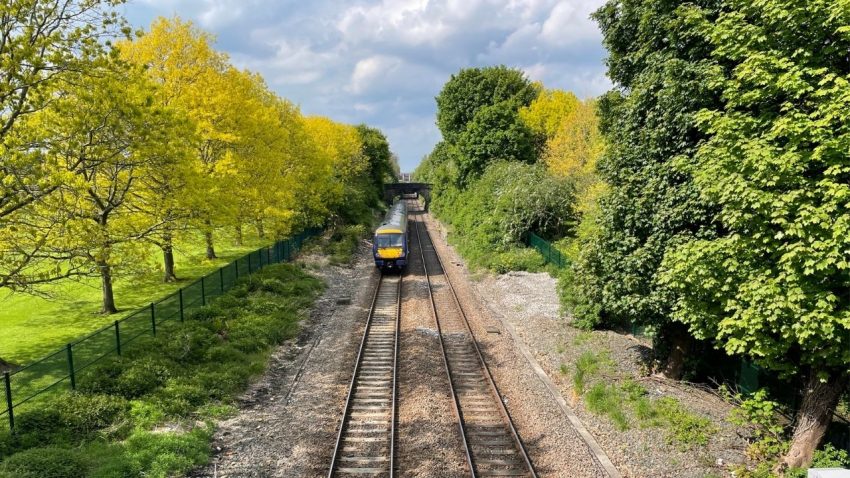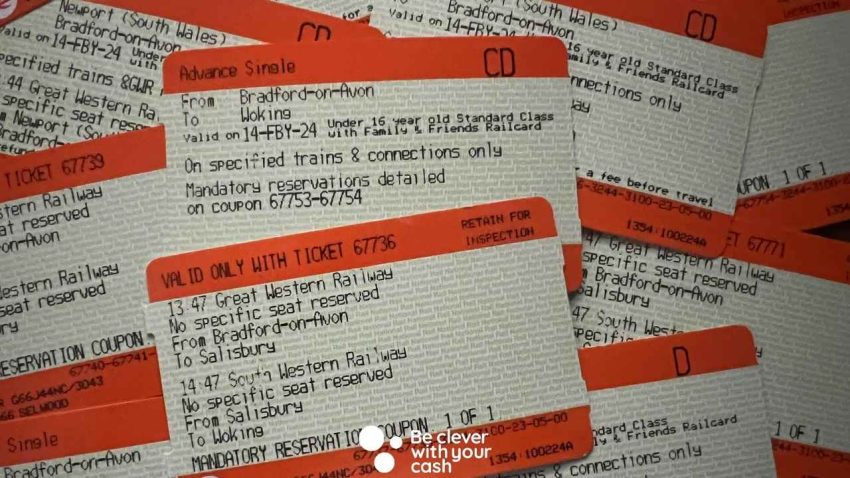Know when and how to pick up low-cost advance rail tickets.
We all know that the priciest train tickets are the ones you buy on the day you travel, and that the earlier you buy one the cheaper it’ll be.
But how do you get these advance tickets? Here are the simple things I do to make sure I don’t pay more than I need to.
Some articles on the site contain affiliate links, which provide a small commission to help fund our work. However, they won’t affect the price you pay or our editorial independence. Read more here.
1. Understand when advance fares are available
You’d think anytime before your journey date would count as advance, but in fact, most train tickets aren’t put on sale until 10 to 12 weeks in advance of travel.
Some train companies will put fares on sale much earlier, with the caveat that there could be changes. However, these tend to be weekday tickets as weekend ones are those likely to be affected by engineering works, and subsequently announced later.
Frustratingly not all routes have advance fares, meaning the price you pay is the same whenever you buy your ticket. If you’re not sure whether they’ve just sold out or simply not available, you can do a quick search for different dates to check.
2. Set an alert for your travel dates
To make sure I know as soon as advance tickets are released, I’ll generally put a note in my phone’s calendar to look for the tickets around that 12-week point (if I know that far in advance).
But I’ll also use alert services. These send you an email for your exact journey.
The best one is probably from the Trainline as it covers all the different networks. However don’t book with The Trainline as you’ll be hit with extra fees.
Some train providers also offer their own alert service (such as LNER). Other’s have usually have a page sharing what tickets are currently available, including this one for all operators via Network Rail.
Get the best of our money saving content every week, straight to your inbox
Plus, new Quidco customers get a high paying £18 welcome offer

3. Advance tickets are available right until you travel
There’s actually more than one price for an advance ticket. Once the cheapest have sold out, the next level becomes available and so on. In fact, it’s possible to get an advance fair on the day of travel with some rail companies.
Yes you might miss out on the very cheapest fares if you aren’t booking 12-weeks ahead, but it’s always worth checking as soon as you know you are going somewhere by train.
Latest time to get advance tickets
These times relate to journeys on the operator’s own services.
- Avanti – 10 minutes before departure
- Chiltern – 6pm the day before travel
- Cross Country – 10 minutes before departure
- East Midlands – 11.59pm the day before travel
- Great Northern – 10 minutes before departure
- Great Western – 2 minutes before departure
- Greater Anglia East Midlands – 11.59pm the day before travel
- Hull – four hours before the train leaves it’s origin, or 3pm the day before for early morning trains
- LNER – 40 minutes before departure, or 11.59pm the day before travel for early morning trains
- Northern – 11.59pm the day before travel
- ScotRail – two hours before the train leaves it’s origin, or 11.59pm the day before travel for early morning trains
- South Western – 11.59pm the day before travel
- Southeastern – 11.59pm the day before travel
- Southern – 11.59pm the day before travel
- Thameslink – 11.59pm the day before travel
- TransPennine – 11.59pm the day before travel
- Transport for Wales – up to 7pm day before travel for some early morning trains. Other services up to 4 hours before departure point of origin




